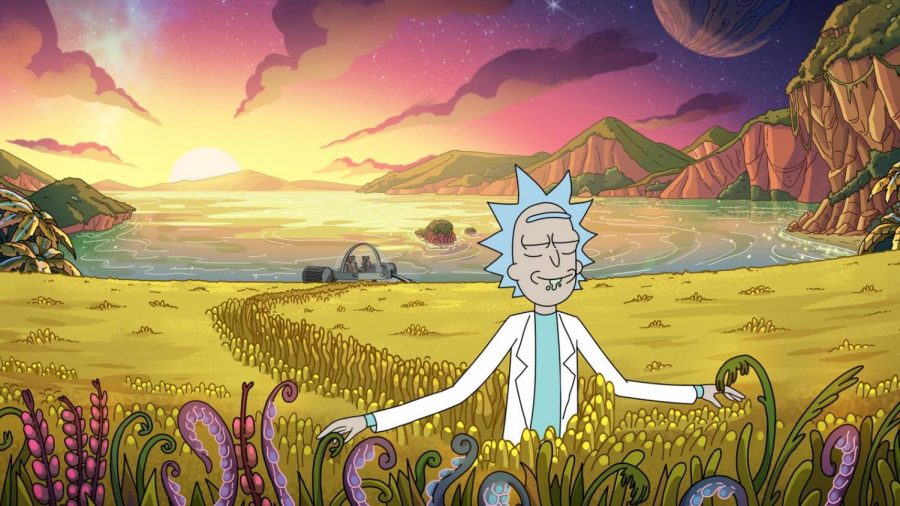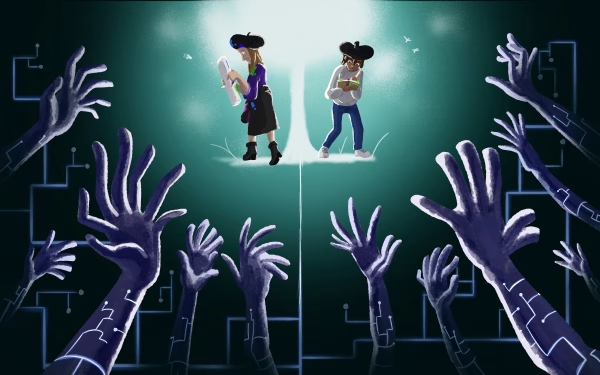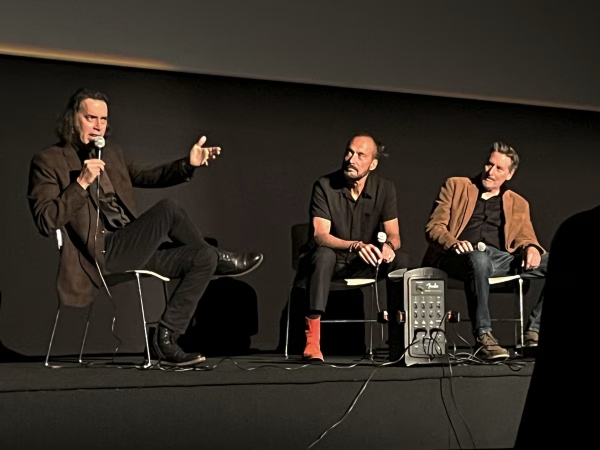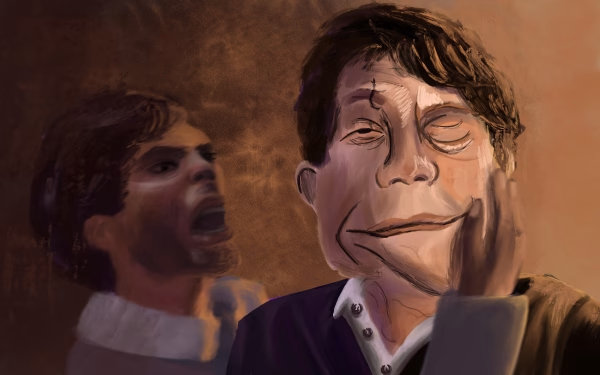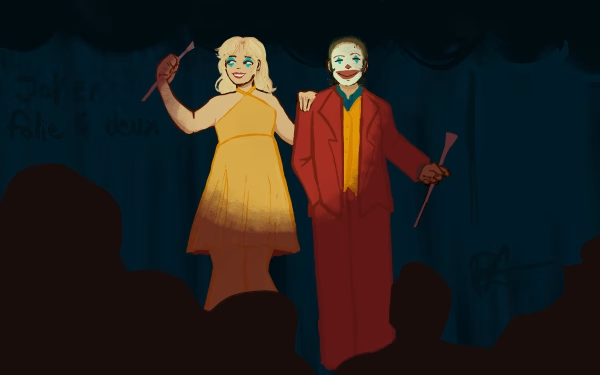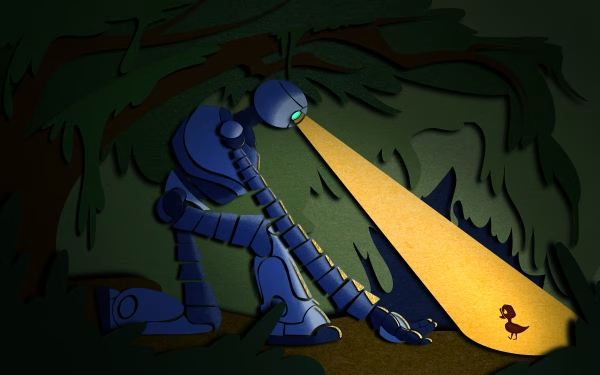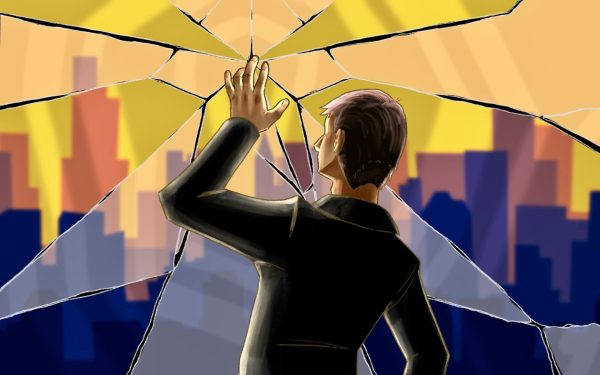REVIEW: ‘Rick and Morty’ returns to melt our brains, make us laugh
“Rick and Morty.”
They love to keep us waiting, but “Rick and Morty” finally has finally returned for the second half of season four.
After a five month hiatus, the series returns with what is perhaps the most bizarre, twisty, meta-storyline that creators Dan Harmon and Justin Roiland have ever created. The episode, titled “Never Ricking Morty,” takes place on a bullet train, with countless characters telling stories about the fabled Rick Sanchez. But quickly, things take a turn and we discover that our heroes are trapped in a “literal story device.”
Part of the fun in this episode are the endless surprises, so I don’t want to delve too heavily into the plot. This is almost impossible, anyway, as it enters mind-bending territory fairly quickly, but without feeling overly complicated.
What I can say is that Harmon has managed to create his most meta episode to date, commenting on his own famed “circle theory” of story. For those who don’t know, Harmon is known for his circular narrative structure that drives the story of each episode. It’s a distilled, user friendly version of Joseph Campbell’s Hero’s Journey structure.
A lot of pressure comes with producing a not just a popular series, but a cultural phenomenon. The showrunners have the difficult task of attempting to improve with each season. This pressure met with sky-high expectations and the reactionary nature of our digital world has made producing quality television more difficult than it should be.
The hoards of fans, foaming at the mouth, corroding the internet with their negativity has created a monstrosity in Twitter feeds and YouTube comment sections. They expect the world and will not be satisfied until every individual need is met.
The strength of this season is how it plays with fan expectations. With every upcoming season comes hundreds of clickbait articles and endless cringe-worthy YouTube videos predicting what comes next. Harmon and Roiland have made it abundantly clear they don’t care what fans expect. Not that they don’t want to produce great shows, but that they refuse to be bogged down by the relentless and parasitic paradigm of fandom. Social media has created swaths of adoring fans and simultaneously destroyed the integrity of what fandom means.
This paradigm destroyed “Star Wars” and “Game of Thrones,” but Harmon, Roiland and company refuse to fall prey to the cacophony of noise and toxicity generated from social media reactionary culture. They are going to do their own thing, whether it’s having a good time, not asking questions or delving into philosophy and serialized story arcs with character implications.
The episode is also able to callback several fan favorite characters and settings (Mr. Messeeks, Blips and Chitz, Bird Person) without feeling forced. That has been a strength this season, as these references don’t feel like unnecessary fan service, but rather a commentary on the notion of fan service and expectations.
It has become commonplace – almost to the point of nausea – for long-running series and film franchises to indulge in fan service in lieu of engaging stories and original ideas. “Rick and Morty” feels like the antithesis of flailing franchises like “Star Wars,” which to this point has become a soulless brand capitalizing on a “remember this?” mentality.
The end of the episode even manages to throw a swipe at our perverse consumer culture, a drive to endlessly buy products without questioning anything – a culture which has become even more corrupted in this time of national crisis.
While this is one of the more complex episodes of the series, it can hardly be called the best. But what makes “Rick and Morty” so special is that there is no compromised vision. What we see on the screen every week is an intensely focused, funny, and ever inventive series which has yet to succumb to the pressures of consumer-driven media. Harmon and company don’t care what we want to see, yet they do everything they can to make us laugh.
They have refused to let fans dictate the terms of the show, which is admirable in its own right. Even if the results don’t always work, I would rather watch a show that is messy and creative than calculated and sterile.


